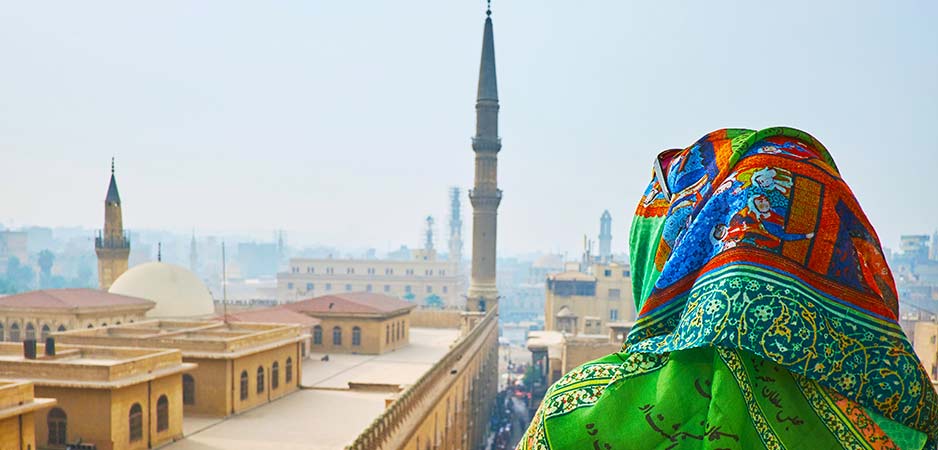In October 2017, Tarana Burke’s 2006 “me too” movement was revived by a simple tweet from actress Alyssa Milano. A year later, the hashtag had been tweeted over 19 million times by women around the world. There is no question that the #MeToo campaign mobilized and united women across the globe. Yet for Egyptian women, the battle against sexual harassment came way before the revival of #MeToo.
Statistics reveal that Egyptian women have been battling sexual harassment for decades. A 2013 UN Women report revealed that 99.3 % of Egyptian women and girls have experienced some form of sexual harassment. In 2017, a Thomson Reuters Foundation poll named Cairo as the most dangerous megacity for women, citing verbal and physical harassment as some of these dangers.
360° Context: The Me Too Movement — Changing the Rules of the Game
Such statistics disclose why Egyptian women had no choice but to embark on an anti-sexual harassment battle much earlier than the start of the #MeToo campaign. Over the years, female activists, and many male supporters, have fought to end the sexual harassment epidemic in Egypt.
No Choice
“We have accomplished many legal and societal gains,” confirms Egyptian journalist Heba Mahfouz, referring to changes in sexual harassment laws, prosecutors handling sexual harassment cases at a much faster rate, in addition to more social awareness and more open discussions on sexual harassment. Egyptian female activists have also been successful in bringing public attention to sexual harassment and transforming it from a private, taboo issue to a public one.
One of the most successful women-led initiatives in Egypt is Harass Map, founded by a group of activists in 2010. Harass Map allows women to report specific sexual harassment incidents by pinpointing on a virtual map the exact location of the incident and describing the perpetrator as a way to warn others and to expose assaulters.
Following the 2011 Arab Uprisings, the Facebook page, I Saw Harassment, was founded in 2012. The initiative is run by anti-harassment activists who monitor and document harassment incidents. They train volunteers, conduct awareness workshops and offer a safe space for Egyptian women to share their harassment experiences. The page has had significant impact, encouraging many women over the years to open up about their experiences and their success stories with fighting their harassers.
Additionally, Egyptian women’s online and offline activism prompted amendments to sexual harassment laws, twice in Egypt’s recent history. The most recent changes came in 2014, with modifications to Article 306 of Egypt’s penal code, to enhance penalties for sexual harassment offenders. It is because of these accomplishments that Mahfouz insists that “#MeToo revived what was already there, but it did not create the Egyptian movement.”
Inspiration and Trauma
While many agree with Mahfouz, others argue that the #MeToo movement managed to inspire select groups of women within Egypt. “For me personally it [#MeToo] has helped open a debate amongst similar-minded men, who are open to learning and improving their behavior,” says human rights activist Sally Sami.
For trauma psychotherapist Yasmine Madkour, the #MeToo movement inspired her personally. “It was the peak moment for me to talk freely and publicly about my personal experience with sexual assault on my personal Tumblr blog,” Madkour reveals. “For years before the #MeToo campaign, I was writing my experience with no details, for healing purposes and also for awareness and empowering purposes. The #MeToo campaign was some sort of trigger for me to talk about my past experience in detail.”
Madkour argues that the campaign also affected some of her patients, largely comprised of sexually-traumatized women. For some, the impact was damaging, as #MeToo news stories triggered traumatic memories. “I advised many of them not to follow the news; it is not healthy for them to keep following what triggers the trauma,” explains Madkour.
Yet for other female patients, Madkour argues the #MeToo impact was positive: “With campaigns like that, every one of them can feel that she is not alone in her battle and that she is not the reason her sexual harasser approached her.” Madkour, Sami and Mahfouz all agree that #MeToo inspired some Egyptian women to go public with their sexual assault and/or harassment experiences.
And they are right. Encouraged by the #MeToo movement, a number of Egyptian women have made public accusations against their offenders. In February 2018, former presidential candidate and human rights lawyer, Khaled Ali, resigned from the Bread and Freedom Party, which he co-founded in 2013, following allegations by a former colleague that she was sexually harassed by Ali in 2015.
In August 2018, an Egyptian woman named Menna Gubran posted a video online of a man harassing her on a Cairo street. The video went viral overnight. Then, in September 2018, a prominent Egyptian TV presenter and Deutsche Welle (DW) employee, Yousri Fouda, was fired from DW following sexual harassment allegations by three DW colleagues. Days later, Egyptian activist Dalia al-Faghal published a Facebook post accusing Fouda of unwanted sexual advances.
Finally, in October of last year, Egyptian Fashion Editor, May el-Shamy, filed a sexual harassment complaint against her boss, which was the first time for an Egyptian woman to file a complaint against a superior.
Disappointment
Despite these promising stories, Sami points out that victim blaming continues to haunt women who speak up. Both Gubran and el-Shamy lost their jobs after they exposed their harassers publicly. Mahfouz and Sami add that the #MeToo campaign had minimal impact on the most vulnerable groups of women, including factory workers and women who rely on public transportation, which is where harassment commonly ensues.
Disappointed that #MeToo has so far failed most Egyptian women, Sami adds, “I hoped it would tackle more serious situations where women are extremely vulnerable to attacks and have no channels to expose or seek help.”
The #MeToo campaign may not have affected all Egyptian women, but the good news is that they continue to grow increasingly vocal and more forceful in their anti-harassment battle. There is no doubt that campaigns such as #MeToo help empower and inspire some, even if they do not reach all women. After all, such diverse campaigns and social media hashtags add more voices to the struggle against sexual harassment. “The voices against sexual harassment and sexism in the workplace have a better chance to be heard through the various campaigns and social media trends,” says Madkour.
The views expressed in this article are the author’s own and do not necessarily reflect Fair Observer’s editorial policy.
Support Fair Observer
We rely on your support for our independence, diversity and quality.
For more than 10 years, Fair Observer has been free, fair and independent. No billionaire owns us, no advertisers control us. We are a reader-supported nonprofit. Unlike many other publications, we keep our content free for readers regardless of where they live or whether they can afford to pay. We have no paywalls and no ads.
In the post-truth era of fake news, echo chambers and filter bubbles, we publish a plurality of perspectives from around the world. Anyone can publish with us, but everyone goes through a rigorous editorial process. So, you get fact-checked, well-reasoned content instead of noise.
We publish 2,500+ voices from 90+ countries. We also conduct education and training programs
on subjects ranging from digital media and journalism to writing and critical thinking. This
doesn’t come cheap. Servers, editors, trainers and web developers cost
money.
Please consider supporting us on a regular basis as a recurring donor or a
sustaining member.
Will you support FO’s journalism?
We rely on your support for our independence, diversity and quality.

















